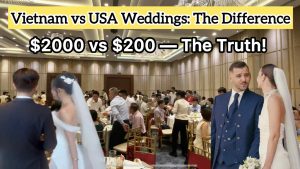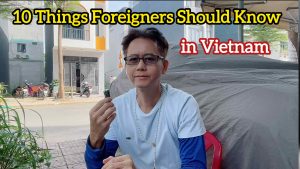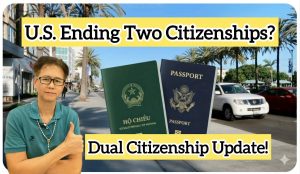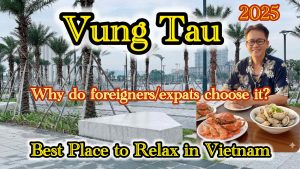Vietnamese-American Shares the Truth After 2 Years Living in Vietnam: Peaceful, But Not Easy
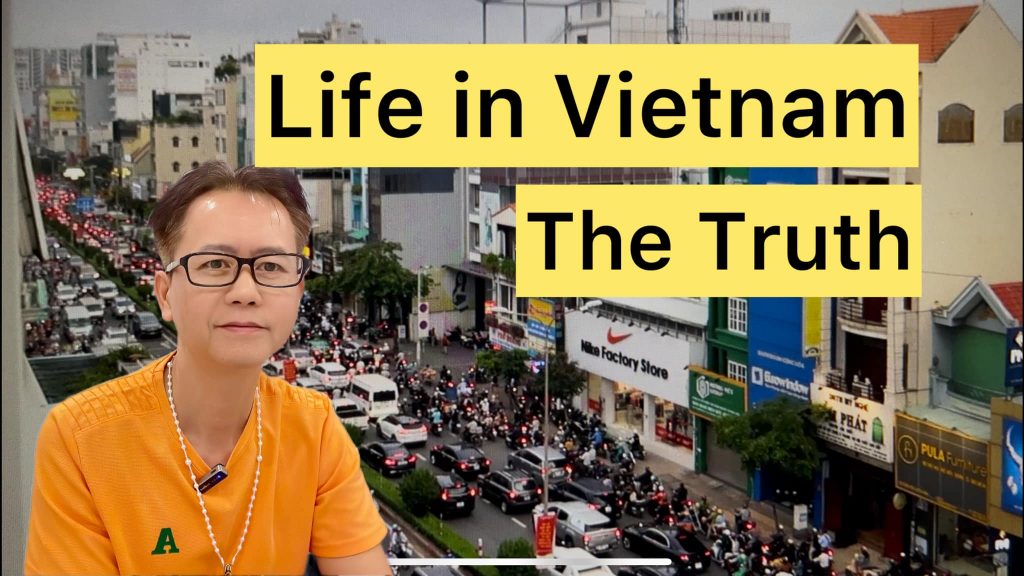
Vietnamese-American Shares the Truth After 2 Years Living in Vietnam: Peaceful, But Not Easy
Introduction: The Dream of Returning Home
After more than 30 years of living in the United States, I decided to return to Vietnam—not just for a short visit, but to live here for a while. At first, I thought I’d stay for a few months to reconnect with my roots. But time passed, and before I knew it, I had spent two full years back in my homeland.
This journey has been both beautiful and challenging. On the surface, life in Vietnam felt light, nostalgic, and warm. But living here long term also brought to light certain difficulties—ones that I had forgotten or never experienced before leaving Vietnam.
This article is a heartfelt, honest reflection on my two years of living in Vietnam as a Vietnamese-American. It’s written for fellow overseas Vietnamese who are thinking about making the same move, and who deserve to know both sides of the story.
Chapter 1: The Comforts of Coming Home
Returning to Vietnam brought a sense of peace I hadn’t felt in years. Life here is simpler, more relaxed. I no longer worry about bills stacking up or spending hours in traffic to get to work. There are no freezing winters, no expensive health insurance plans, and no endless mortgage payments.
I rented a small studio apartment in Bình D??ng for under $400 a month. Every morning, I could walk to the park and be greeted by neighbors who remembered my face. Breakfast was a hot bowl of pho for just a couple of dollars. Street food was everywhere—fresh, flavorful, and cheap.
Most importantly, I felt connected. In the U.S., life was comfortable but lonely. My neighbors barely said hello. Everyone was busy. Even family members, though living in the same house, often stayed in separate rooms. In Vietnam, human connection is part of daily life. People talk, share food, help each other, and make time for conversation.
At first, I thought: “Why didn’t I come back sooner?”
Chapter 2: The Cracks in the System
But like any honeymoon period, reality eventually sets in.
Traffic and Fines That Don’t Make Sense
Driving in Vietnam is a completely different world from the U.S. The roads are chaotic. Motorbikes dart between cars. Lane markings often don’t matter. But the real issue? The traffic signs.
Many road signs are small, hidden behind trees, or placed in confusing spots. One time, I turned right at an intersection, not knowing there was a “no right turn” sign buried behind a pole. I was pulled over and fined nearly 15 million ??ng (over $600 USD).
Another time, I accidentally drove over the center lane late at night because the road wasn’t clearly marked. Again—I was stopped and fined. It didn’t feel like public safety. It felt like a trap.
In America, I once sped a little while rushing to a final exam. The officer pulled me over, I explained the situation, and he let me go with just a warning. There was fairness, and a sense of humanity. Here, it’s often the opposite.
Bureaucracy That Wears You Down
Trying to complete even the most basic paperwork in Vietnam can be exhausting. I once needed a simple residency confirmation. I called the ward office—no answer. I called again. Finally, someone picked up and gave me another number. That person told me to visit a different office in person.
When I went there, they said, “This isn’t the right place. Go to the other building.” That building sent me to another person… and so on. No one seemed to know exactly who was responsible.
In the U.S., you call one hotline, get connected to the right person, and your issue is resolved. In Vietnam, it often feels like you’re chasing a shadow, and your time isn’t valued.
Healthcare: Cheap, But At What Cost?
I had to take a family friend to a hospital in Saigon. We arrived early in the morning. It was packed. People sat on the floor. Air was thick, lines were long, and doctors overwhelmed. We waited until 2 or 3 in the afternoon just for a basic consultation.
Yes, the medical bill was cheap. But the experience was draining. I looked around and saw people who had traveled all the way from Central Vietnam just to be seen. I felt both lucky and helpless.
In the U.S., we sometimes complain about slow healthcare—but at least appointments are scheduled, facilities are clean, and waiting doesn’t last an entire day.
Food Safety: The Unspoken Fear
I love Vietnamese food. But living here long term, I worry about food safety daily. There are constant stories of fake supplements, chemicals in vegetables, contaminated meat.
One viral video showed piles of fake medicine being dumped in a trash heap. Another exposed counterfeit dietary pills sold in markets.
Now, every time I go shopping or eat out, I ask myself: “Is this safe?” In the U.S., you can trust the grocery store. Here, it feels like you need luck and a good set of instincts.
Chapter 3: My Advice for Fellow Vi?t Ki?u
If you’re an overseas Vietnamese thinking of moving back to Vietnam, I’m not here to tell you “don’t do it.” I’m saying: do it wisely.
Don’t sell everything in the U.S. and move back in one shot. Instead, spend a few months or half a year here. Rent a place. Live like a local. Don’t just visit tourist spots—go to hospitals, deal with local paperwork, drive during rush hour.
Experience the full reality—not the version you see during Tet holidays or family reunions.
Some people will love it. Others may find it overwhelming. I’ve met many Vi?t Ki?u who tried to stay and gave up after just 2 or 3 months. Some lost money. Some got cheated. Some couldn’t handle the heat, the noise, or the lack of structure.
So please—test it first. Make your decision with eyes open.
Chapter 4: What Is Happiness, Really?
After two years here, I’ve asked myself many times: “Where do I truly belong?”
Vietnam is my homeland. It’s where I was born. It’s filled with scents and memories and people who look like me. But after 30 years in the U.S., I’ve also changed. I’ve become used to systems, to personal space, to efficiency.
Living here, I’ve learned that happiness isn’t about a country. It’s about how you feel in your heart.
Happiness is not where you are, but how you live.
It’s not about Vietnam or America—it’s about where someone is waiting for you to come home.
I still don’t know if I’ll stay here forever. Maybe I’ll divide my time between both countries. But now, I understand myself more. And that, to me, is the greatest gift this journey has given me.
Conclusion: Come With Love, But Also Wisdom
Vietnam has changed. So have we. The reunion between a Vi?t Ki?u and their homeland can be beautiful—but it can also be complicated.
My message is simple: Come with love. Come with respect. But come with awareness.
The beauty of Vietnam is real. The challenges are real too. And if you’re prepared to embrace both, then yes—Vietnam may truly feel like home again.
Until then, live well, choose wisely, and remember:
Home is not a place. Home is where someone misses you.
VietnameseAmerican #LifeInVietnam #RealExperience #MovingBackToVietnam #ReverseCultureShock #LivingAbroad #HomeAndHappiness #ReturnToVietnam

